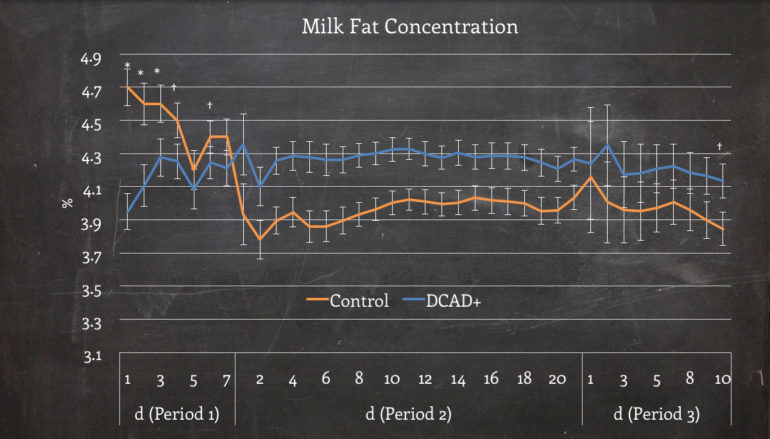
How Quickly Does Milk Fat Change After Abruptly Feeding Potassium Carbonate – Dr. Joseph Harrison
November 4, 2016
Check out this final segment from Dr. Joseph Harrison, from Washington State University, as he continues his series on Feeding Potassium Carbonate to the early lactation dairy cow. This series has summarized their research at Washington State University on this important topic.
What you will learn:
– Overall, supplementation of a diet with K carbonate sesquihydrate resulted in a greater milk fat concentration within 72 hours of supplementation
– Milk fat concentration remained greater when K carbonate sesquihydrate supplementation was ceased
– The difference in milk fat concentration was associated with a greater concentration of C18:1 trans -11 during the same time period, suggesting that the K carbonate sesquihydrate effect on milk fat concentration was mediated via a shift in biohydrogenation of C 18:2 in the rumen.
Dr. Joseph Harrison
Department of Animal Science
Washington State University
Dr. Joseph H. Harrison received his BS, MS, and PhD from The Ohio State University. After completing his Ph.D. in Se and Vitamin E for reproduction of the dairy cow in 1983, he joined the Animal Science Department at Washington State University where he is currently a Professor. Dr. Harrison’s research has primarily focused on both nutrition and manure-soil-crop studies. Dr Harrison is classically trained as a dairy nutritionist and has developed expertise in the area of whole-farm nutrient management, which involves the integration of animal nutrition, agronomy-crops-soils, engineering, and economics. Dr. Harrison has received several awards including the Washington State Dairy Federation President’s Award in 2007.
Tags: Dr. Joseph Harrison
© 2024 Virtus Nutrition, LLC








Leave a Comment